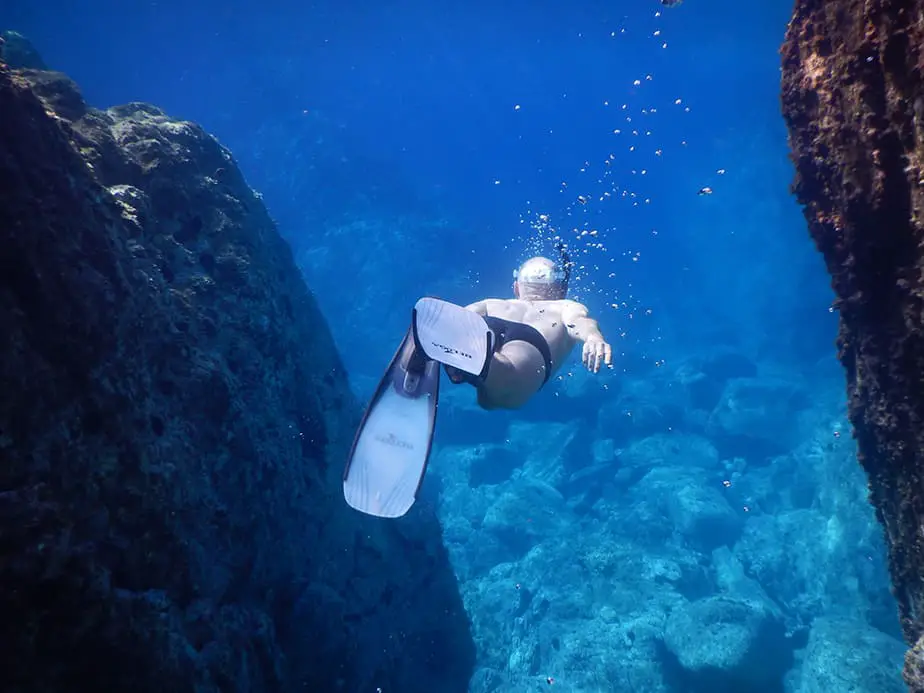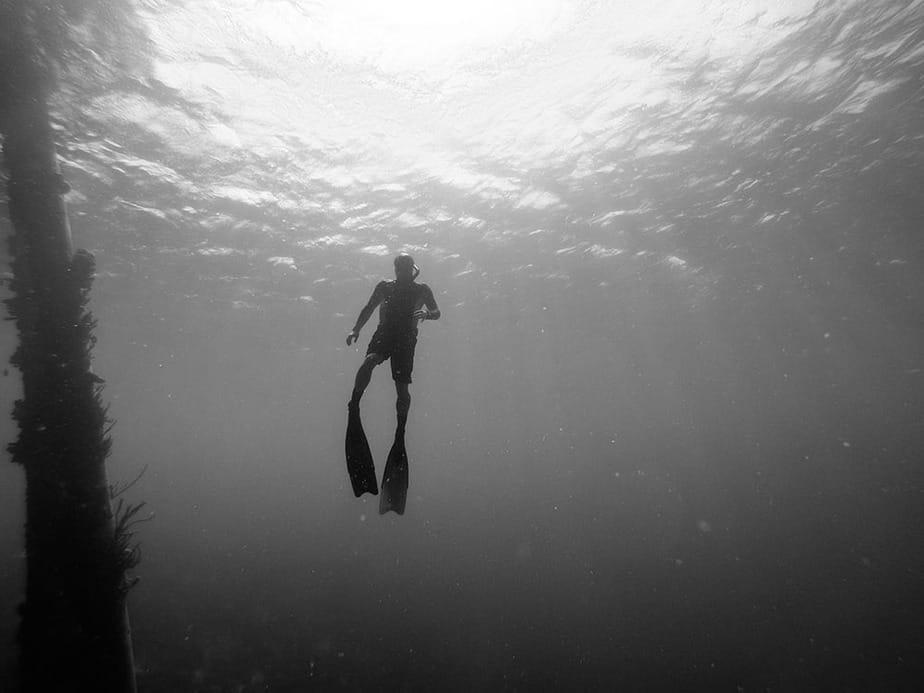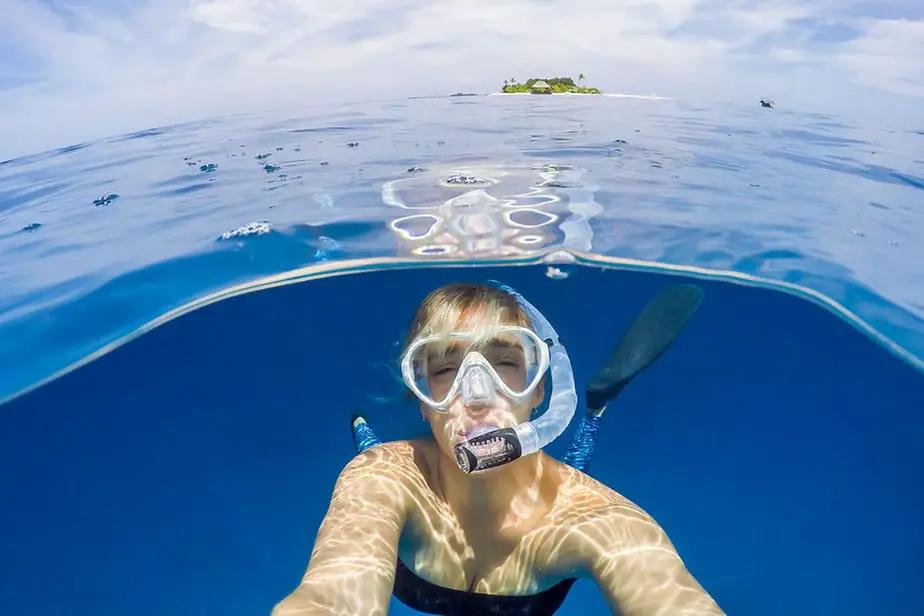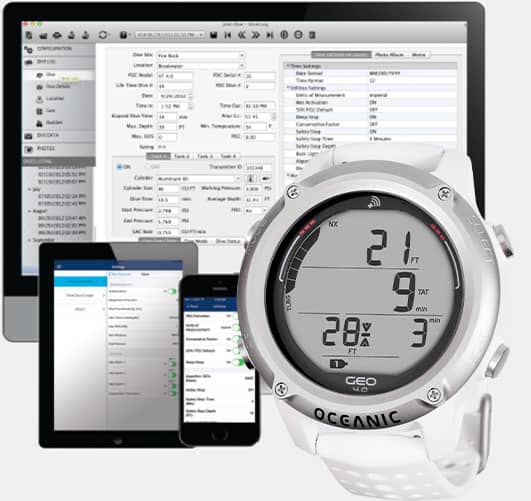Like snorkeling, freediving and spearfishing are sports that require little equipment, but what few gear pieces you do need are truly invaluable. Whether you are a casual freediver or a competitive one, as soon as you realize what a dive computer can do for you, you’ll realize that they are actually such a huge benefit to have for freediving.
Do you need a dive computer for freediving? Strictly speaking, no. However, that’s like saying you can drive with the headlights off at night because you do it all the time and have had no accidents so far. Doing something reckless like that is begging for an accident to occur sooner or later. Freediving is inherently risky, but a freediving watch can make the activity so much safer. Besides tracking your dive depth and elapsed dive time, it can also help you plan and track your surface intervals, track your long-term record of dives, and help you avoid shallow water blackouts. A better question to ask yourself is, why haven’t you got a freediving computer yet?
In this article, we will discuss what a dive computer with freediving mode can do for you. We go over the many benefits they can provide, why they are important, and why you should get a dive computer for freediving.
Why should you get a freediving computer?
Did you know that freedivers were some of the first groups of people to adopt using dive computers as part of their training? Over time, even spearfishers joined in on using dive computers, and now some dive computers even specifically come with a freediving mode.
If you’re just starting out with freediving, you might see a dive computer as one of those optional luxuries that only snobby, rich people get, kind of like the Apple watch of watersports products. The truth is, once you learn how your body works when doing a breath-hold dive, the data that a dive computer provides becomes invaluable. Here are a few reasons why:
They make breath-hold sports much safer

When we are engaged in a physical activity, our attention should be primarily focused on the task at hand, not busy trying to count the seconds or distance of your current dive. Besides, our brains are not the best judge of time and distance anyways, especially when you’re preoccupied already.
As such, your estimates of your dive time and depth will likely be off, even if you took a proper surface interval break. With a dive computer, you can offload this task which requires brainpower to an external “brain” if you will, one that is much more precise than you. That way, you can focus entirely on your breath-hold dive, and this benefit alone makes the activity much safer overall.
But that’s not all a freediving watch can do for you. They also come with audible alarms to let you know once a depth has been reached or a set amount of time has elapsed. Again, we are not the best judge of these things and it’s very easy to overshoot our estimates which can become a safety risk if we go over by too much.
For instance, the water visibility and conditions aren’t always the same. On a good day with clear visibility, a dive that can feel like 10 meters might be as deep as 20 m, or vice versa on a low-viz day. By relegating this task to a dive computer, not only will you be more accurate, but you can also have peace of mind knowing that you are staying on-target with your goals.
Dive computers are also more reliable than a marked rope. Unfortunately, human error can cause marked ropes to be mismarked, and this has already cost a few freedivers their lives. Plus, ropes can be stretched out or set up incorrectly. With a freediving computer, you have redundancy. You can verify that the rope has been marked or set up correctly by also checking it against the computer.
They reduce the likelihood of CO2 buildup and shallow water blackouts

The main risk of breath-hold diving is, unsurprisingly, the risk of drowning. However, the cause of drowning is not always as simple as a freediver diving too deep during an intense competition or getting obstructed during the ascent. Sometimes, what causes a freediver to drown is a sudden loss of consciousness close to the surface, and this is known as a shallow water blackout.
Why does this happen? When you hold your breath, your body produces carbon dioxide (CO2). The longer a breath-hold dive lasts, the more CO2 is produced. Also, if you dive repeatedly with short surface intervals (time between dives), CO2 keeps accumulating in your body. The body is not a fan of CO2, to put it lightly. When you breathe in too much CO2 and not enough oxygen, you can start to feel drowsy, like you’re falling asleep. That actually means you’re asphyxiating. Eventually, you can lose consciousness, and if that happens underwater, it spells certain death if you don’t have a buddy with you..
This is where a freedive computer can be beneficial in preventing it. Since it tracks your dives so carefully, it can also help you track your surface intervals in big, clear numbers on its display. You can know how long your previous dive was exactly, and how long you should rest at the surface to recuperate for the next dive. The more accurately you track your surface intervals, the less likely you’ll suffer a shallow water blackout.
They help you improve your breath-hold skills

When you’re just starting out with freediving, you likely didn’t take it seriously. You just held your breath for as long as you could and tried to have fun with it. However, as you progressed with your breath-hold training, your dives became deeper and longer. At some point, perhaps right now, you’ll want to know the exact duration and depth your dives are, and if you are getting better week to week.
Freediving without a dive computer is like preparing for a marathon without keeping track of the time and distance that you ran for. How will you know if you’re progressing or making good time? What if you are actually regressing week to week and you aren’t realizing it? Even knowing that can help you adjust your training to determine what the problem is.
Furthermore, one’s mental state, physical condition, even the types of foods one eats and the quality of one’s sleep from the days before can affect a dive on a different day. As such, there is a high possibility of variance in your performance from dive to dive unless you are keeping track of all the other factors as well. Thus, you cannot simply assume that you’re progressing linearly all the time. A freediving watch will give you the exact data so you can make informed decisions on how you’d like to proceed.
They help you stay on top of your surface intervals

How accurately do you think you can keep track of time? Let’s say you want to have a 3 minute surface interval. Can you actually wait for 3 minutes on the dot, or will you end up underestimating (or overestimating it) by a long shot? In this case, overestimating is fine, but underestimating is not.
You can even do an experiment – start a timer, let’s say for 1 minute, and you look away from the timer and do a countdown yourself for one minute. After the timer beeps, how close were you to the timer? Were you off by a few seconds? I bet if you had set a timer for 3 minutes, 5 minutes or possibly even longer, you’ll be off by a larger margin. Again, if you’re underestimating the time, you are putting yourself at serious risk of a shallow water blackout.
Just by having a freedive computer with you, you don’t have to do this tedious task of counting the time accurately in your head or ballparking it which puts you at risk of underestimating the surface interval.
As an aside, we recommend your surface intervals be at least three times the length of your most recent breath-hold dive. So if you recently held your breath for 1 minute, have a surface interval of 3 minutes at the minimum. If you still feel like you need to rest longer, then do it. And if you feel like you are ready to go earlier than that, don’t. A shallow water blackout is not something you want to experience, because many do not survive that experience.
They track your dive time in relation to depth
Not only does a freedive computer track your max depth, but it also tracks your ascent and descent rates. A good rule of thumb is to move at a speed of 1 m per second. So if you intend to dive down to a depth of 10 m, it should take you 10 seconds to reach that depth, and another 10 seconds for the ascent, plus any bottom time.
This is a good rule to abide by so that you are not overly exerting yourself. It’s impossible to judge your time and distance traveled accurately without a freedive computer, and this is good to know as part of your training.
They keep a long-term record of your dives

Dive computers already have the functionality to keep detailed dive logs for scuba divers, tracking their max depth during a dive, bottom time, ascent rate, deco stops, even their heart rate and air consumption rate. It’s all very detailed,and dive computers with freediving modes can also keep track of this info.
Since freedivers complete many more dives per session than scuba divers, plus a breath-hold dive is going to be much shorter than a scuba dive, it’s not practical to keep a detailed paper log of so many dives.
With a dive computer, if you set it to freediving mode, its sampling rate will automatically be increased meaning that it will log your dive information much faster. This means that your logbook memory will fill up faster, but it will be full of details regarding each few seconds of your breath-hold dive.
So that you don’t overwrite old dive data, you can upload your dive profile to a PC where you can keep a more permanent record of hundreds, if not thousands of past dives, so you can see how you’re progressing over time.
Other useful features a freedive computer provides
Still not convinced? Here are some other great uses for a freedive computer:
- Keep track of your buddy’s dive time (just use your surface time as a guide).
- Set depth alarms to help you maintain a certain pace, or to warn you that you are diving deeper than expected. This is ideal for both training purposes and as a safety precaution.
- Stopwatch – great for training.
- Time – know what time it is and when to call it a day.
- Backlight – so you can still see at a deep depth, in low-vis, or at night.
- Depth – will track your current depth and max depth.
- Dive counter – know how many dives you performed in a freediving session.
- Dive log – examine your previous dives to see how you’re progressing.
- Water temperature – more data points to work with so you know if you perform better in certain water temperatures.
Surely with all of these great features that a dive computer can offer freedivers and spearos, there’s bound to be at least one or two you find useful? Personally, I love tracking data, because I can see how I am progressing over time. Even if all you use a freedive computer for is as a glorified timer, that is already such a great benefit.
If you’re interested in which freediving computers we recommend, we wrote a list of our favorites here.

